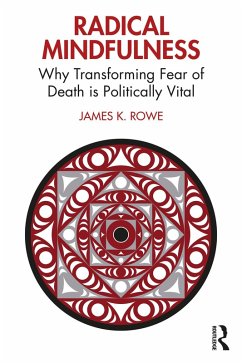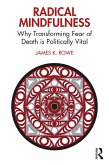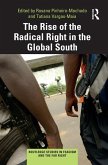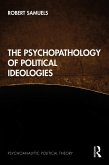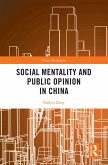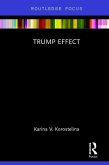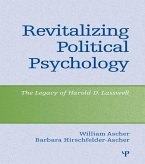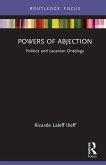Dieser Download kann aus rechtlichen Gründen nur mit Rechnungsadresse in A, B, BG, CY, CZ, D, DK, EW, E, FIN, F, GR, HR, H, IRL, I, LT, L, LR, M, NL, PL, P, R, S, SLO, SK ausgeliefert werden.
Alexis Shotwell, Professor of Sociology and Anthropology, Carleton University
"How do white supremacism, alpha-masculinity, class politics, and climate denialism fold into the dominant institutions of today? In this remarkable book, James K. Rowe helps us to see and feel the connections. Existential traumas about death and deadly institutional practices, he says, are intertwined, with the traumas and drives feeding into each other. Radical mindfulness, as a set of collective practices, can help to reshape these connections. Drawing sustenance from Bataille, James Baldwin, Indigenous thinkers, Buddhists, feminists and others, Rowe folds mindfulness into radicalism and radicalism into mindfulness. An astute and timely book, full of insights and inspirational stories."
William E. Connolly, Krieger-Eisenhower Professor, Johns Hopkins University
"Can humans collectively stop enslaving, exploiting, segregating and desecrating? Can "metabolizing" our fear of death precipitate awakening to our responsibilities within "the inescapable network of mutuality"? Weaving existential philosophy with acknowledgement of Indigenous wisdom, Buddhism, feminism, and dismantling white supremacy practices and tools, James K. Rowe has crafted a bold proposal of love and hope."
Mushim Patricia Ikeda, Buddhist teacher at the East Bay Meditation Center, author, and community activist
"I consistently ruminate over the climate destruction befalling us. I know settler colonialism and white supremacy are deeply woven into the harm befalling Mother Earth. I am often left feeling helpless due to the seeming infallibility of the systems that maintain control. James K. Rowe's book provides me with immense hope as he clarifies the drive for the will to supremacy, which is to say, he allows the reader an opportunity to understand what is happening - the ignorance that the settler colonial regime depends upon is therefore brought into disruption."
Tricia McGuire-Adams, Anishinaabek Nation, Canada Research Chair in Indigenous Ganandawisiwin Sovereignties, University of Ottawa
"Original and poignant, Radical Mindfulness is a deep-dive into the social justice implications of death denial. Rowe argues that at the root of our entangled predicaments of climate change, ongoing colonialism, threats to democracy, and racial and gender injustice, is the inability of those in power to cope with their fear of death. From "white extinction anxiety" to the viral currency of outrage, this incapacity to manage the ultimate terror of mortality manifests in violence large and small. If mindfulness can help us face our fear of death, it can reduce the harms we wittingly or unwittingly commit."
Sarah Jaquette Ray, Professor of Environmental Studies, California State Polytechnic University, Humboldt
"Radical Mindfulness addresses the need to simultaneously come to terms with death at the personal level while dismantling/reconstructing death-denying structures (religious, political and economic). A magnificent book - timely, important and compelling."
Sheldon Solomon, Professor of Psychology, Skidmore College
"In Radical Mindfulness, James K. Rowe compellingly advocates for the inclusion of mind-body practices such as mindfulness as vital components of political transformation. Reflecting the radical inclusivity animating the project, Radical Mindfulness is at once an autoethnography, intellectual genealogy, social critique, existential guide, and healing justice manifesto. In the words of bell hooks, one of the many visionaries inspiring the book, it exemplifies scholarship as the "practice of freedom."
Ann Gleig, Associate Professor of Religion and Cultural Studies , University of Central Florida
"This powerful, deeply reflective book is exactly what the world needs. James K. Rowe, a long-time meditator and social theorist, offers searing insight into how mindfulness can help progressive thinkers and movements root-out the sources of supremacy and work collectively to build a more just, ecological sane, and humane future. Finally, someone has linked our inner and outer lives in a compelling, politically relevant, critical way. This book is liberation between two covers."
Paul Wapner, Professor Emeritus of Global Environmental Politics, American University

